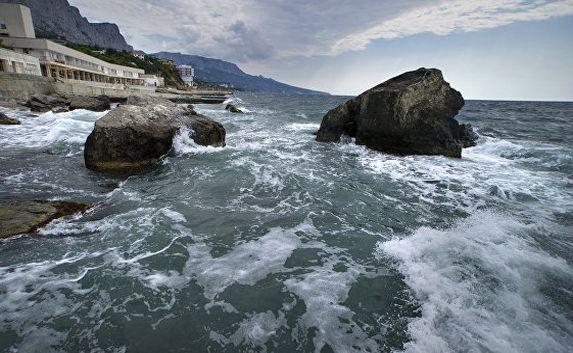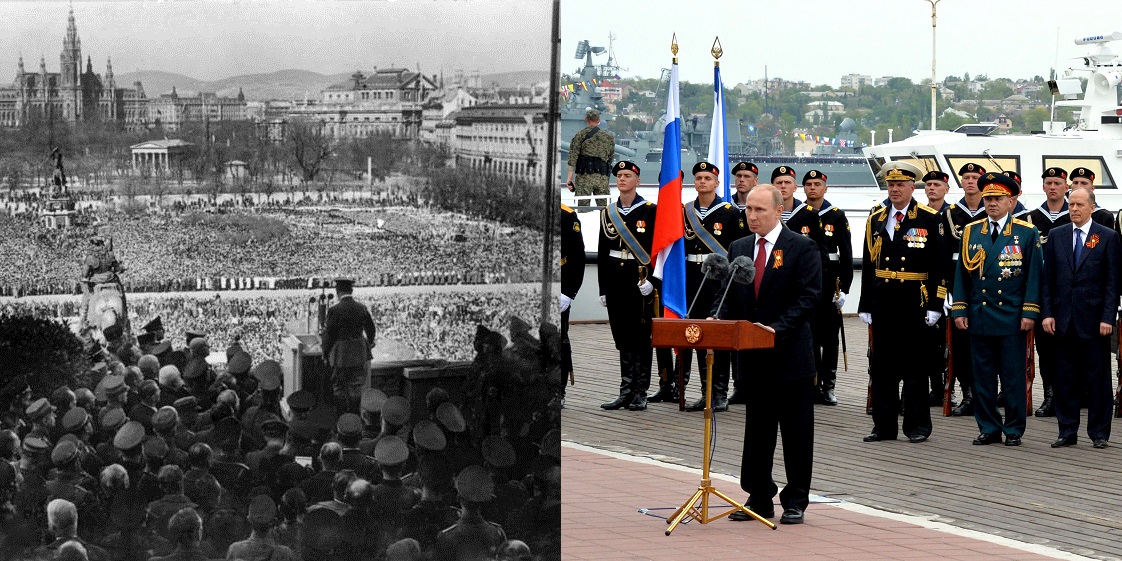Famous Russian political technologist and gallery owner Marat Gelman thinks that the level of Russia’s isolation from the rest of the world now depends on the President of Ukraine.
 Marat Gelman, who in various years gave consultations to such politicians as Vladimir Putin and Viktor Yanukovych, has distanced himself for politics in the recent years, having dedicated himself to promoting cultural projects in Russia and Ukraine. However visual art does not prevent him from adhering to quite radical views – for a Russian: harshly criticise President Vladimir Putin’s policies, particularly his entire anti-Ukrainian campaign.
Marat Gelman, who in various years gave consultations to such politicians as Vladimir Putin and Viktor Yanukovych, has distanced himself for politics in the recent years, having dedicated himself to promoting cultural projects in Russia and Ukraine. However visual art does not prevent him from adhering to quite radical views – for a Russian: harshly criticise President Vladimir Putin’s policies, particularly his entire anti-Ukrainian campaign.
Marat Gelman, who is watching the development of the Ukrainian-Russian conflict and is well versed regarding the recent events in Ukraine, spoke of this to NV.
It is probably even good that even in this chaos it is obvious that not other Ukrainians and not even Russia, but some number of dumb heads aided by Russian special services are fighting against Ukraine. These people are really dangerous as, besides war, they cannot and do not want to do anything. They are even more dangerous than a troop of Chechens – those can go back home, but these have no way back. There is only one solution to this situation – the victory over systematic armies over non-systematic ones.
At first everything that was happening in the east of Ukraine was seen as a catastrophe, but now it is everyday life. News from the front, terrorists, someone occupied something, someone was killed. This is probably war.
The process of Russia’s isolation from the world has begun. And this is dangerous because at some point Putin might feel like a hermit – just like those radicals in the east of Ukraine.
Then we can await very unexpected steps on his part – the Russian soul has very dark corners.
The celebration of the Crimean annex will not be enough for long. And it will obviously be more difficult to continue occupying lands as easily as it has been up until now. Therefore they will start looking for internal enemies in Russia. And that is the way to uneducated fundamentalism which the President will have to either lead, having built an Orthodox Iraq in Russia, or lose the trust of the radical audience which already considers him a traitor for not having deployed the army in Donetsk yet.
In the last week I have had many meetings in Europe, and I always explain that by isolating Russia the Europeans are playing against themselves – they are turning Putin into a global warrior.
The absurdity of the situation lies in that Putin has spent a lot of effort and time for Russia to become part of the world and for himself to become one of the most influential politicians: he held large-scale Olympics, let Khodorkovskiy go, and so forth. And now he has lost all of it within a span of several weeks.
Putin wanted to lead the broader society. He was looking for spiritual foundation in Slavic brotherhood, created the Customs Union, wanted to turn Russia into a spiritual centre for orthodoxy. As a result, we have an irresponsible politician with a history of mistakes and fiascos. A street urchin of sorts who is shouting that Crimea is ours and a country which is risking isolation from the rest of the world. Even those that would benefit economically from working with Russia now regard us with caution. Now the world views Putin not as a mediator but someone who has to go.
Poroshenko now has an ace – the level of Russia’s isolation today depend on the President of Ukraine.
When he makes harsh statements about relations with Russia at international meetings, that has an influence on us. And I think the Kremlin understands this.
Naturally, Ukraine will have to face a very difficult situation. But I will be frank, we would dream of the same processes happening in Russia. You got a huge capital of trust in the shape of compassion from the entire world. And that is a very powerful resource, and we are not just talking about money and funds. Just like insane minds are now raring to fight in Donetsk, insane philanthropists will try to get to Ukraine to organise their projects here, to make this country interesting.
I am already aware of a minimum of two European museums that want to hold Ukrainian expose and Ukrainian days. I think this is just the beginning. A trend for Ukraine will appear in the world.
Putin’s favourite technique is to jump from politics to the economy. During the talks regarding political issues, the Ukrainian side may be told “first, pay for gas,” or, for example, the art activists may suddenly express their support for Putin. Therefore the most important thing for the new President of Ukraine in relations with Russia now is to set his priorities.
What is more, there is a very important humanitarian component. In Ukraine, Russian is spoken, many have families in Russia. On the other hand, Russia has a small internal Ukraine of its own – the people that don’t support Putin’s policies and feel for Ukrainians. It is important for this humanitarian component of our relations to be outside of political control. And while Ukraine needed these connections more before, now they are more necessary for Russia.
That Crimea is Russian is almost a medical fact. But to take it when the Ukrainian state did not really exist was a very wrong step. Now we look like a thief – first we took away the territory and now we cannot decide what to do with it. Plus this gave rise to very serious problems for Russia – economical threats and political isolation.
It would have been smarter to return Crimea with long-term cultural policies. And now nobody out of serious cultural managers will start creating projects there. I have already been propositioned four times, but I responded with a refusal. It is disputed territory, and culture is sensitive to such things – in the current situation Russia almost have no chances of comprehending Crimea.
Donetsk is far more interesting – here the cultural layer has been destroyed, and not just by war. This is a real humanitarian catastrophe. I know many talented people from Donetsk which have left the city at the first chance they could, nobody wanted to live there.
This city could become a new cultural space in Ukraine having repeated the fate of, say, Glasgow. In the 90’s it was also a depressive workers’ town but today it is the centre for design in the UK. Donetsk will not manage to copy this, bit the possibility of the city’s resurrection exists.
If I do come to work in Ukraine, it will be only as a cultural manager – and not to Kyiv but to Donetsk. It can be made even more interesting than Kyiv and I think that it is a compelling task. To be frank, I already have ideas how to do this. Now I am waiting for the war to end there.
Source: NVUA
Translated by Mariya Shcherbinina




